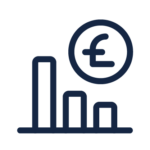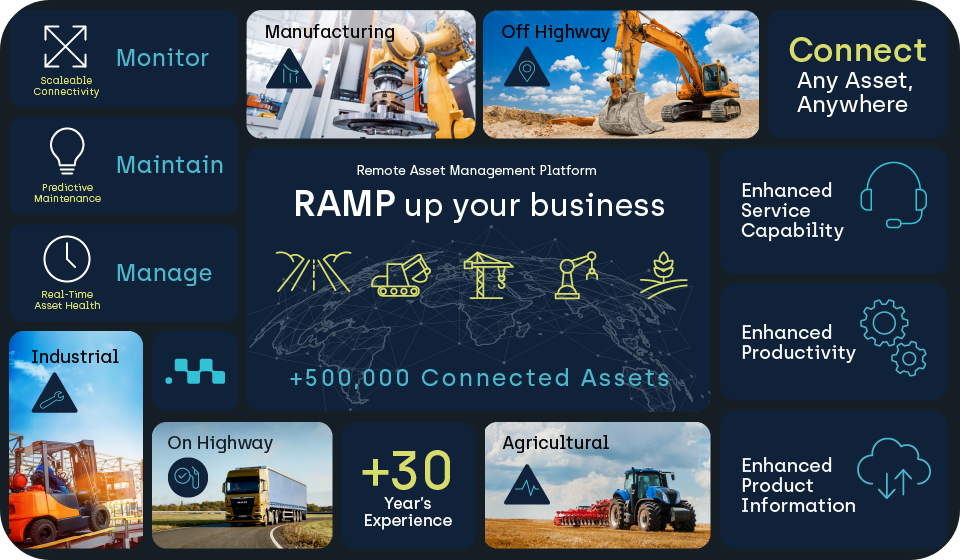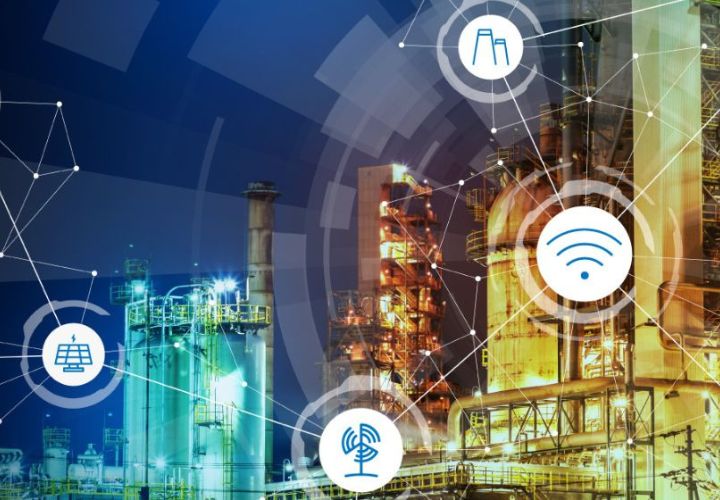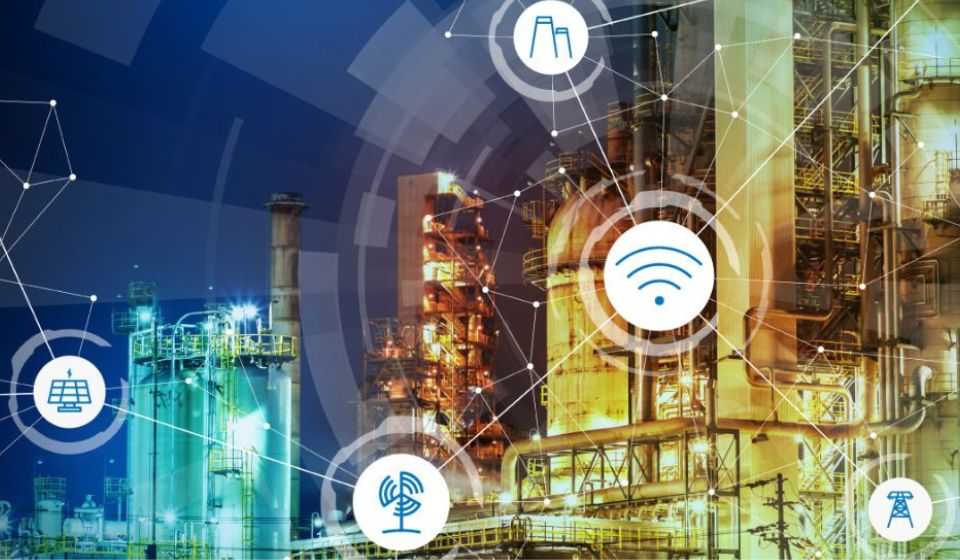The world of technology is ever-evolving, and one of the latest buzzwords you might have heard is ‘Industrial Internet of Things’ (IIoT).
But what exactly is IIoT, and how is it different from the more familiar term, Internet of Things (IoT)?
In our latest blog post, we will explore the fascinating world of IIoT, its workings, benefits, challenges, and its promising future.

What is the definition of IIoT?
IIoT stands for the Industrial Internet of Things. At its core, it’s an extension of the broader concept of IoT. While IoT connects everyday devices and appliances to the internet, IIoT focuses on connecting industrial equipment and machinery. It’s the marriage of traditional industries with the power of data, connectivity, and automation.
The difference between IIoT and IoT
The key distinction between IIoT and IoT lies in their applications. IoT often involves consumer-oriented devices like smart thermostats, fitness trackers, and home appliances.
On the other hand, IIoT is all about industrial applications. It’s used to optimise manufacturing processes, monitor equipment health, and improve operational efficiency in sectors like Manufacturing, Logistics, Agriculture, and more.
How does IIoT work?
IIoT relies on a network of sensors, devices, and machinery connected through the internet. These sensors collect data from the industrial equipment and transmit it to a central system or cloud platform.
Advanced analytics and machine learning algorithms then process this data to provide actionable insights, enabling smarter decision-making and automation.
Characteristics of IIoT
Data-driven decision making: IIoT empowers businesses to make informed decisions based on real-time data, enhancing operational efficiency, and reducing downtime.
Remote monitoring: Industrial equipment and assets can be monitored, managed and controlled remotely, reducing the need for on-site personnel, and improving safety.
Predictive maintenance: IIoT can predict when equipment is likely to fail, allowing for proactive maintenance and preventing costly breakdowns.

1. Increased productivity:
IIoT allows for real-time monitoring and control of industrial processes and machinery. This means that production can be optimised, downtime minimised, and overall operational efficiency improved. Workers can also access data remotely, enabling them to make informed decisions quickly.

2. Reduced operational costs:
With IIoT, businesses can predict maintenance needs more accurately. By monitoring equipment health in real-time and identifying potential issues before they become critical, companies can schedule maintenance at the right time, avoiding costly unplanned downtime. It also reduces energy consumption by optimising resource utilisation.

3. Enhanced product quality:
IIoT facilitates quality control through continuous monitoring and data analysis. Manufacturers can identify defects or deviations in real-time and make necessary adjustments to maintain high product quality. This leads to fewer defects, less waste, improved warranty performance, and enhanced customer satisfaction.

4. Improved safety:
IIoT enables the implementation of advanced safety measures. Sensors can detect unsafe conditions, operator misuse or equipment malfunctions, triggering immediate alerts or automatic shutdowns to prevent accidents. This helps protect workers and assets while ensuring compliance with safety regulations.
Which industries use IIoT?
IIoT has found applications across various industries, including Manufacturing, Logistics, Agriculture, Healthcare, and Energy.
In Manufacturing, it’s used for process optimisation and quality control. In Logistics, it enhances supply chain visibility and efficiency and in Agriculture, IIoT helps optimise irrigation and crop management. The possibilities are endless.
Is IIoT secure? What are the risks?
Addressing the security aspect of the Industrial Internet of Things (IIoT) is paramount. While IIoT offers tremendous benefits, it does introduce several security risks – which cannot be ignored – due to its interconnected nature.
Implementing robust cybersecurity measures and staying vigilant are essential to safeguarding data, operations, and the overall integrity of IIoT systems. Balancing innovation with security is key to maximising the potential of IIoT while minimising its vulnerabilities.
The challenges of IIoT
Implementing IIoT solutions can be challenging, requiring significant upfront investments in hardware, software, and infrastructure.
Additionally, interoperability issues between different IIoT devices and platforms can pose obstacles.
Overcoming these hurdles requires careful planning, investment, expertise, and a commitment to addressing issues related to interoperability, security, data management, and more.
The future of IIoT
The future of IIoT looks incredibly promising. As technology continues to advance, we can expect even more sophisticated applications and solutions.
The growing integration of artificial intelligence and machine learning will further enhance the capabilities of IIoT, making industries more efficient and sustainable.
How Team Microlise can help you:
At Microlise, we are at the forefront of IIoT innovation. Our solutions leverage the power of IIoT to provide real-time visibility, optimise asset management, and enhance operations of all shapes and sizes.
Our commitment to excellence and continuous improvement drives us to explore new ways to harness the potential of IIoT for our clients.

IIoT is revolutionising the industrial landscape by connecting machines, collecting data, and driving actionable insights. While it presents challenges, its benefits far outweigh the risks. As technology continues to evolve, IIoT will play a pivotal role in shaping the future of industries worldwide.
If you’d like to learn more about Microlise IIoT solutions, request a demo or reach out directly to our expert, David Midgley.






